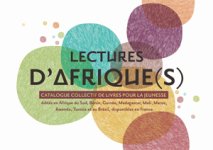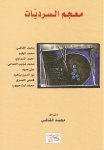Publishing countries : Italy
From 2009 to 2015, the Alliance developed, on request of publisher members, a modest diffusion and distribution activity in France of youth literature published in Africa (“Lectures d’Afrique(s)”) . This fund addresses a double issue: make literary production published in Africa accessible and visible in the Northern market Northern market and, more modestly, participate in a rebalancing of commercial flow between South and North.
The youth sector, expanding in many regions in the world, is strategic in countries where publishing is emergent – it is indeed through youth literature that tomorrow’s readerships are formed. While catering to their local readership, publishers in Africa also wish to be known internationally. Their participation at book fairs in the North, for instance the Youth Book and Press Fair in Seine-Saint-Denis, reveals the presence of a readership on the Northern markets.
Although African literary output is sold to the general public in the North, is it bought in the context of fairs dedicated to right sells? What are the necessary prerequisites to participate in these professional fairs? Would African literature find buyers?
In partnership with Bologna Children’s Book Fair, the Alliance convened eight African publishers in Bologna from the 23rd to the 27th of March 2013.
Through experience sharing and the intervention of a literary agent specialised in rights transfer (mainly at the service of small youth publishing houses), publishers will also work on the following items:
• Identify relevant catalogues for copyrights transfer;
• Develop marketing tools to better present one’s production;
• Negotiate rights and follow-up with business contacts…
Publishers will also reflect on publishing standards in the design and production of books, standards that could facilitate access to international markets while posing a production standardisation risk. How can we reconcile publishing on two levels simultaneously, addressing a local readership and also an international one?
A session of the workshop will focus on the development of an advocacy document proposing a series of recommendations aimed at book fairs to support the attendance of publishers from the South.
Finally, this meeting will be the occasion for a projects fair, a “mini Bologna” that could lead to translation proposals, rights transfers and co publishing projects. Some of these projects could thereafter be supported by the Alliance.
As an extension to this workshop, meetings with publishers and organisations supporting youth publishing were held during the Fair, providing an opportunity to concretely illustrate the reflection processes carried out over the two previous days, to better discover and understand the workings and mechanisms of a Fair such as Bologna’s. We hope that this support will enable publishers to renew and assure their participation in the long term… and ultimately, that African youth literature will be more visible on international markets.
The Alliance warmly acknowledges the support of Bologna Children’s Book Fair, Fondation de France, Centre national du livre and the Institut français of Madagascar, essential to the implementation of this workshop.





















